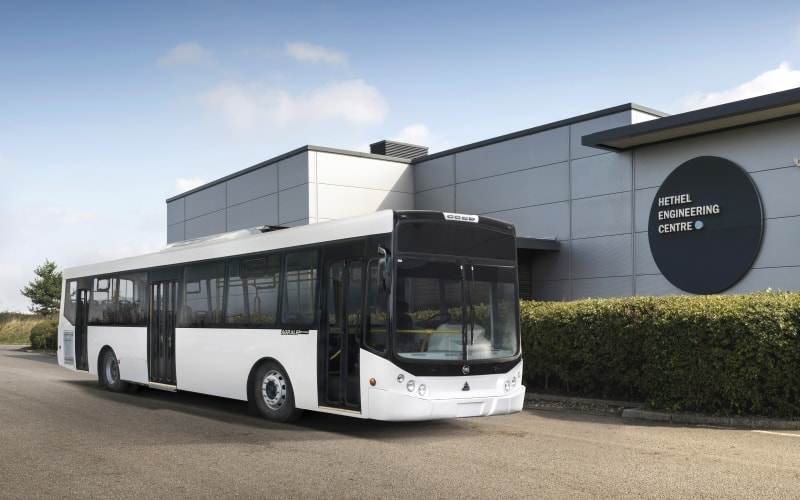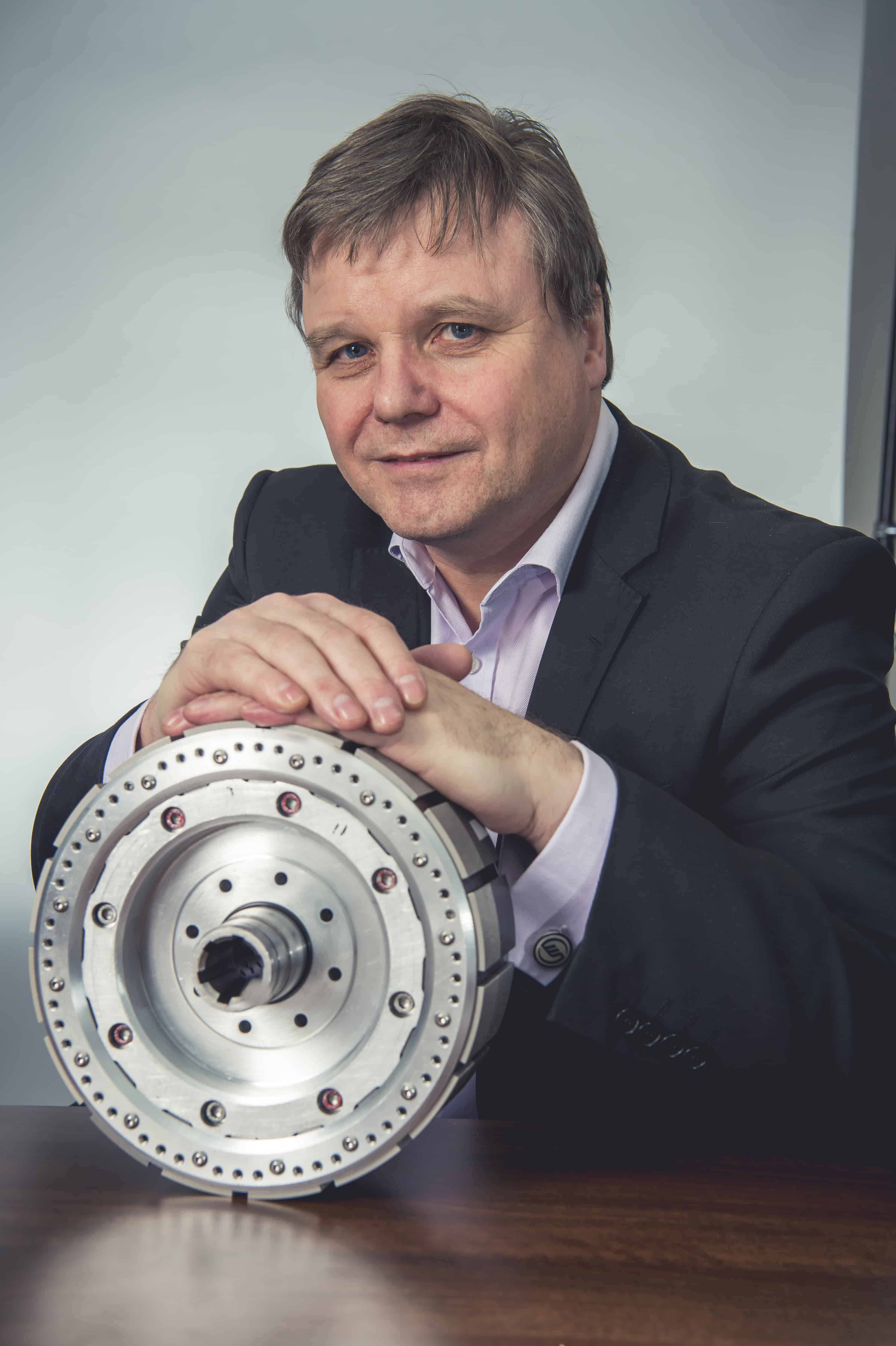UK’s Equipmake brings electric bus powertrain to South America
UK manufacturer Equipmake has partnered with Brazil’s Agrale on a new electric bus that is set to be rolled out across South America.

The Hethel-based firm will be supplying its new EBus drivetrain which features the company’s APM200 spoke architecture electric motor, claimed to be the world’s most power/torque dense electric motor. The APM200, which also powers the upcoming Ariel HIPERCAR, will be paired with Semikron SKAI inverters, alongside lithium-ion battery technology.
“Each bus system has two APM200s and they’re mounted on a bespoke two-speed gearbox, which is part of the drivetrain system we’re supplying,” Ian Foley, Equipmake MD, told The Engineer.
“The spoke architecture [gives] a better use of magnetic flux, you get a higher torque density. In addition to that, we’ve also developed a system to directly cool the system with water because a limiting factor on the power density is the magnets getting too hot. A combination of those two things have enabled us to get the size and weight down.”

Register now to continue reading
Thanks for visiting The Engineer. You’ve now reached your monthly limit of news stories. Register for free to unlock unlimited access to all of our news coverage, as well as premium content including opinion, in-depth features and special reports.
Benefits of registering
-
In-depth insights and coverage of key emerging trends
-
Unrestricted access to special reports throughout the year
-
Daily technology news delivered straight to your inbox











National Gas receives funding to develop Gravitricity underground hydrogen storage system
One single rock salt mine - Winsford - has 23 <i>MILLION </i>cubic metres of void and even allowing for 10% of that void set aside for hazardous waste...